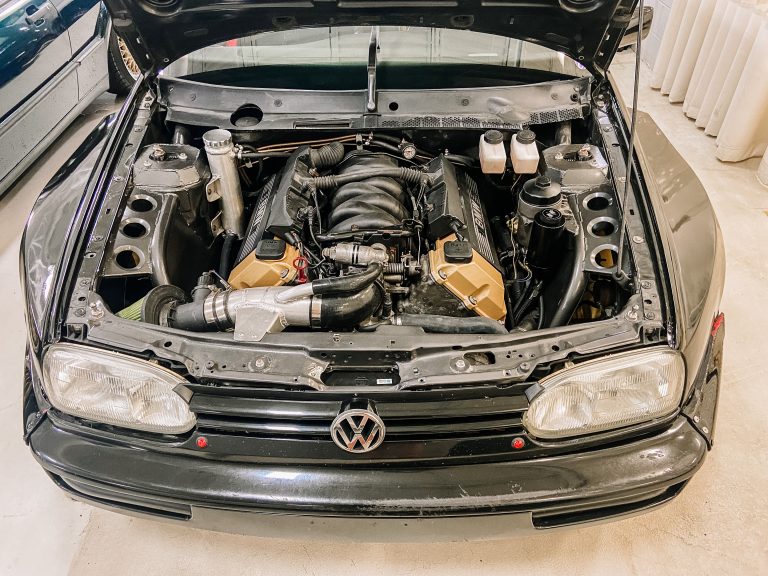BMW cars are expensive to maintain due to their high-performance engines, which require specialized knowledge and equipment for proper servicing, resulting in higher labor costs. Additionally, BMW replacement parts are typically more expensive as they are sourced from high-end manufacturers.
The cost of ownership and maintenance may also vary depending on the specific BMW model and the service center being used. Despite these higher costs, BMWs are known for their excellent build quality and premium look and feel, making them worth the investment for those seeking luxury and performance.
Premium Parts And Specialty Tools
BMW cars are expensive to maintain due to their high-performance engines that require specialized knowledge and tools for proper servicing. This results in higher labor costs and the need for premium parts from high-end manufacturers. The overall cost of ownership and service may vary depending on the specific model and BMW service center chosen.
High-quality, Brand-specific Parts Costs
One of the main reasons why BMW cars are expensive to maintain is the cost of high-quality, brand-specific parts. BMWs are known for their exceptional performance and luxury features, which require top-notch components to ensure optimal performance. These parts are often produced by high-end manufacturers such as Bosch and Bilstein, who specialize in providing premium quality automotive parts. Due to their superior quality and exclusive compatibility with BMW vehicles, these parts come with a higher price tag compared to those used in non-luxury vehicles.
Need For Specialized Diagnostic Equipment
Maintaining and servicing BMW cars also requires specialized diagnostic equipment. These vehicles are equipped with advanced electronic systems and features that require specific tools and software to diagnose and address any issues effectively. The use of specialized diagnostic equipment ensures accurate troubleshooting and precise repairs, but it also adds to the overall maintenance costs. BMW service centers invest in these tools and constantly update their software to keep up with the ever-evolving technology in BMW vehicles, thereby contributing to the higher maintenance expenses.
Limited Availability Of Certified Repair Shops
Another factor that makes BMW cars expensive to maintain is the limited availability of certified repair shops. BMW is a luxury brand with a smaller market share compared to mass-market automobile manufacturers. Therefore, finding a certified repair shop with technicians trained specifically to work on BMW vehicles may not be as easy as finding one for more commonly-owned brands. Due to their specialization and expertise, these repair shops tend to charge higher rates for their services. Additionally, the limited availability means that you may have to travel a considerable distance to find a certified BMW repair shop, which can also add to the overall maintenance costs.
High-performance Engine Demands
Engine Complexity and Precision TuningOne of the key reasons why BMW cars are expensive to maintain is the high-performance engine demands. BMW is renowned for its powerful engines that deliver exceptional performance and driving experience. These engines are meticulously designed and engineered to provide optimal power and efficiency.
The complex nature of BMW engines is a significant factor in their high maintenance costs. The engineering behind these engines involves advanced technologies and intricate components, which require specialized knowledge and expertise to properly service. With their precision tuning, even the slightest adjustment or repair must be done with utmost accuracy to ensure optimal performance.
Recommended High-Grade Lubricants and MaterialsAnother factor contributing to the high maintenance costs of BMW cars is the requirement for high-grade lubricants and materials. BMW recommends using specific lubricants and fluids that meet their stringent standards. These lubricants are crucial for maintaining the engine’s performance, protecting its intricate components, and ensuring longevity.
Using subpar lubricants or materials can have detrimental effects on the engine’s performance and may even lead to expensive repairs down the line. To preserve the integrity of the high-performance engines, BMW owners must use the recommended high-grade lubricants and materials, which often come at a premium price.
Specially Trained Technicians for MaintenanceIn addition to the engine complexity and special materials, BMW cars require specially trained technicians to perform maintenance tasks. These technicians have extensive training and expertise in working with BMW vehicles, ensuring that every maintenance procedure is carried out to the manufacturer’s exact specifications.
The specialized skills and knowledge possessed by these technicians enable them to diagnose and address issues accurately, preventing any potential problems from escalating. However, their expertise comes at a cost, often leading to higher labor charges compared to non-luxury car brands.
Moreover, due to the advanced technologies used in BMW cars, technicians need access to specialized diagnostic equipment and software to effectively service the vehicles. This further adds to the overall maintenance expenses.
Considering the engine complexity, the need for high-grade lubricants, and the requirement for specially trained technicians, it is no surprise that BMW cars are expensive to maintain. The investment in maintaining a BMW ensures that the high-performance engine continues to deliver exceptional power and driving experience, making it worthwhile for enthusiasts and those seeking uncompromising performance from their vehicles.
Labor Costs For Skilled Technicians
BMW cars are expensive to maintain because they have high-performance engines that require specialized knowledge and equipment for proper servicing. Labor costs for skilled technicians are also higher due to the expertise needed to work on these luxury vehicles. The cost of ownership and service will vary depending on the model and BMW service center chosen.
Advanced Training And Certification Requirements
One of the reasons why BMW cars are so expensive to maintain is the advanced training and certification requirements for skilled technicians. BMW vehicles are known for their high-performance engines and intricate systems, which require specialized knowledge and expertise to service properly. As a result, BMW service centers invest heavily in training their technicians to ensure they have the necessary skills to diagnose and repair these complex vehicles. The extensive training and certification processes increase the overall labor costs involved in maintaining BMW cars.
Higher Hourly Rates Compared To Standard Vehicles
In addition to the advanced training requirements, another factor contributing to the high labor costs for maintaining BMW cars is the higher hourly rates charged by skilled technicians. BMW service centers often charge higher rates compared to standard vehicle repair shops due to the level of expertise and specialization required to work on these luxury vehicles. The higher hourly rates can quickly add up, making the overall maintenance costs for BMW owners more expensive.
Complex Procedures Increasing Service Time
Furthermore, the complexity of procedures involved in servicing BMW cars can significantly increase the service time required. BMWs are equipped with advanced electronic components and intricate systems, which can be challenging to diagnose and repair. Skilled technicians often need to spend more time meticulously inspecting and troubleshooting these complex systems to ensure they are functioning at their optimal level. The increased service time directly affects the overall labor costs for maintaining BMW cars, as more hours are needed to complete the necessary repairs and maintenance tasks.
The Role Of Technology And Innovation
BMW cars are known for their high-performance engines, which require specialized knowledge and equipment for proper maintenance. This, along with the use of high-end manufacturers for replacement parts, contributes to the higher costs associated with BMW maintenance. Factors such as the specific model and service center can also affect the overall cost of ownership and service.
Integration Of Cutting-edge Tech Features
When it comes to BMW cars, one of the main reasons why they are so expensive to maintain is the integration of cutting-edge tech features. BMW has always been at the forefront of automotive innovation, equipping their vehicles with the latest advancements in technology.
From advanced safety systems to state-of-the-art infotainment systems, BMW cars are packed with sophisticated tech features that enhance the driving experience. While these features undoubtedly offer numerous benefits to drivers, they also come with a hefty price tag when it comes to maintenance and repairs.
The complexity of these cutting-edge tech features means that only specialized technicians with in-depth knowledge and the right equipment can effectively diagnose and repair any issues that may arise. This level of expertise and specialized equipment comes at a cost, which ultimately contributes to the higher maintenance expenses associated with BMW cars.
Added Complexity In Electrical Systems
In addition to their advanced tech features, BMW cars have witnessed a significant increase in the complexity of their electrical systems over the years. The integration of numerous electronic components, sensors, and modules has made the electrical system of BMW cars more intricate and delicate.
This added complexity often leads to more intricate troubleshooting and diagnostic procedures, resulting in higher labor costs for BMW owners. The specialized training and expertise required to navigate through these complex electrical systems make the maintenance and repair process more time-consuming and challenging, thereby driving up the overall expenses.
Frequent Software Updates And Calibrations
Continuing with their commitment to innovation, BMW regularly releases software updates and calibrations to ensure optimal performance, functionality, and safety. These updates address any potential bugs, improve system efficiency, and introduce new features to enhance the driving experience.
However, these frequent software updates and calibrations require trained technicians to carry out the procedures using specialized tools and equipment. This adds another layer of cost to the already expensive maintenance of BMW cars.
Moreover, the process of updating and calibrating software systems can be time-consuming, as it involves thorough testing and validation. The expertise and attention to detail required for these procedures translate into higher labor costs, ultimately impacting the overall cost of maintaining a BMW.
Exclusive And Expensive Replacement Parts
BMW cars are expensive to maintain due to their high-performance engines that require specialized knowledge and equipment for servicing. Additionally, the cost of ownership and service varies depending on the model and specific BMW service center being visited. Replacement parts for BMWs are also typically more expensive as they are made by high-end manufacturers.
One of the reasons why BMW cars are so expensive to maintain is due to the exclusive and expensive replacement parts they require. These replacement parts are specifically designed and manufactured for BMW vehicles, which contributes to their high price tag. Let’s take a closer look at why these replacement parts are so costly.
High-end Manufacturers And Material Quality
When it comes to BMW cars, high-end manufacturers are often responsible for crafting the replacement parts. Companies like Bosch and Bilstein are known for their top-notch quality and precision. These manufacturers employ advanced materials and engineering techniques to ensure that every component meets the highest standards. As a result, the materials used and the technology implemented in these parts contribute to their exclusive and expensive nature.
Proprietary Components Limiting Aftermarket Options
Another factor that adds to the expense of BMW replacement parts is the limited availability of aftermarket options. BMW vehicles often have proprietary components that are designed specifically for them, making it difficult to find compatible alternatives in the aftermarket. This limitation increases the reliance on authorized BMW dealerships or service centers to obtain these specialized parts, contributing to the higher price point.
Luxury Car Parts Versus Economy Car Parts Price Comparison
Comparing the price of BMW replacement parts to those of economy cars further highlights the difference in cost. Luxury car parts, including those of BMW, are typically manufactured to higher standards and with superior materials compared to their economy car counterparts. This difference in quality and performance naturally comes with a higher price tag. When you factor in the exclusivity and limited aftermarket options, the cost of maintaining a BMW becomes even more apparent.
Warranty And Service Plans Impact
BMW cars are expensive to maintain due to their high-performance engines that require specialized knowledge and equipment for servicing. This leads to higher labor costs and more expensive replacement parts, making the overall cost of ownership and service higher compared to other vehicles.
Warranty and Service Plans Impact Details of BMW service packages BMW offers a range of service packages that can help alleviate the cost of maintaining their vehicles. These service packages are designed to cover the regular maintenance and repair needs of the car, ensuring that it remains in optimal condition throughout its lifespan. The packages typically include services such as oil changes, brake inspections, and fluid top-ups, as well as additional benefits like roadside assistance and extended warranty coverage. One popular BMW service package is the BMW Ultimate Care, which covers scheduled maintenance for up to 3 years or 36,000 miles, whichever comes first. This package includes services like engine oil changes, engine filter replacements, and brake fluid replacements. It also includes services like multi-point inspections, tire rotations, and windshield wiper blade replacements. With the BMW Ultimate Care, owners can have peace of mind knowing that their vehicle is being taken care of by certified BMW technicians using genuine BMW parts. How warranties affect long-term maintenance expenses BMW vehicles typically come with a standard 4-year/50,000-mile warranty to cover manufacturing defects and certain repairs. This warranty can help reduce long-term maintenance expenses, as it covers the cost of repairs or replacements for covered components. However, it is important for BMW owners to understand the limitations of the warranty and its coverage period. Once the warranty period expires, owners may be responsible for covering the cost of repairs or replacements themselves. Additionally, certain wear-and-tear items such as brake components, tires, and windshield wiper blades are typically not covered by the warranty, meaning that owners will have to bear the full cost of replacing these items. Comparison with other luxury brands’ service plans When compared to other luxury brands, BMW’s service plans offer comprehensive coverage and competitive pricing. For example, Mercedes-Benz offers a similar service package called Mercedes-Benz Service A, which covers the first 10,000 miles or 1 year, whichever comes first. This package includes services like synthetic motor oil replacement, fluid level checks, and tire inflation checks. BMW’s service packages provide comparable coverage and often at a similar cost. In contrast, some luxury brands may offer less comprehensive service plans or charge higher prices for their packages. Porsche, for instance, offers a Porsche Scheduled Maintenance plan that covers the first 4 years or 40,000 miles, at an additional cost. This plan includes services like oil changes, air filter replacements, and brake fluid changes. However, the cost of this plan can be significantly higher than BMW’s service packages. In conclusion, BMW’s warranty and service plans have a significant impact on the overall cost of maintaining their vehicles. These plans offer comprehensive coverage for scheduled maintenance and can help reduce long-term expenses. When compared to other luxury brands’ service plans, BMW’s packages offer competitive pricing and comparable coverage. Overall, investing in a BMW service package can provide peace of mind and help ensure that your vehicle remains in top condition for years to come. Article Source: YourBlog.comFrequently Asked Questions On Why Are Bmw Cars So Expensive To Maintain
Are Bmws Really That Expensive To Maintain?
BMW maintenance costs can be higher due to the specialized knowledge and equipment needed to service their high-performance engines. The overall cost will vary based on the model and service center you choose. Replacement parts for BMWs are typically more expensive, as they are made by luxury manufacturers.
While BMWs may require higher maintenance costs compared to non-luxury brands, they offer excellent build quality and a premium look and feel.
Why Are Bmws So Hard To Maintain?
BMW cars require specialist knowledge and equipment for maintenance due to their high-performance engines. This results in higher labor costs. The cost of ownership and service may vary depending on the model and service center you choose. BMWs also use high-end components, making replacement parts more expensive compared to other cars.
What Are The Cons Of Buying A Bmw?
BMW cars can be expensive to maintain due to high-performance engines and specialized knowledge and equipment required for servicing. Labor costs can be high, and replacement parts from high-end manufacturers can also be pricier. However, maintenance and repair costs can vary depending on the model and the BMW service center visited.
Are Bmws Worth The Money?
Yes, BMWs are worth the money due to their high-performance engines and excellent build quality. They have a premium look and feel, inside and out, and do not cut corners on paintwork, interior materials, and dashboard design. However, maintenance and repair costs can be higher compared to other brands due to the specialized knowledge and equipment required.
Conclusion
The high cost of maintaining BMW cars can be attributed to the need for specialist knowledge and equipment to service their high-performance engines. Additionally, BMW replacement parts are often more expensive as they are made by high-end manufacturers. As luxury vehicles, BMWs generally have higher maintenance and repair costs compared to other makes and models.
It is important for BMW owners to be aware of these factors in order to budget for the ongoing expenses of owning a BMW.






